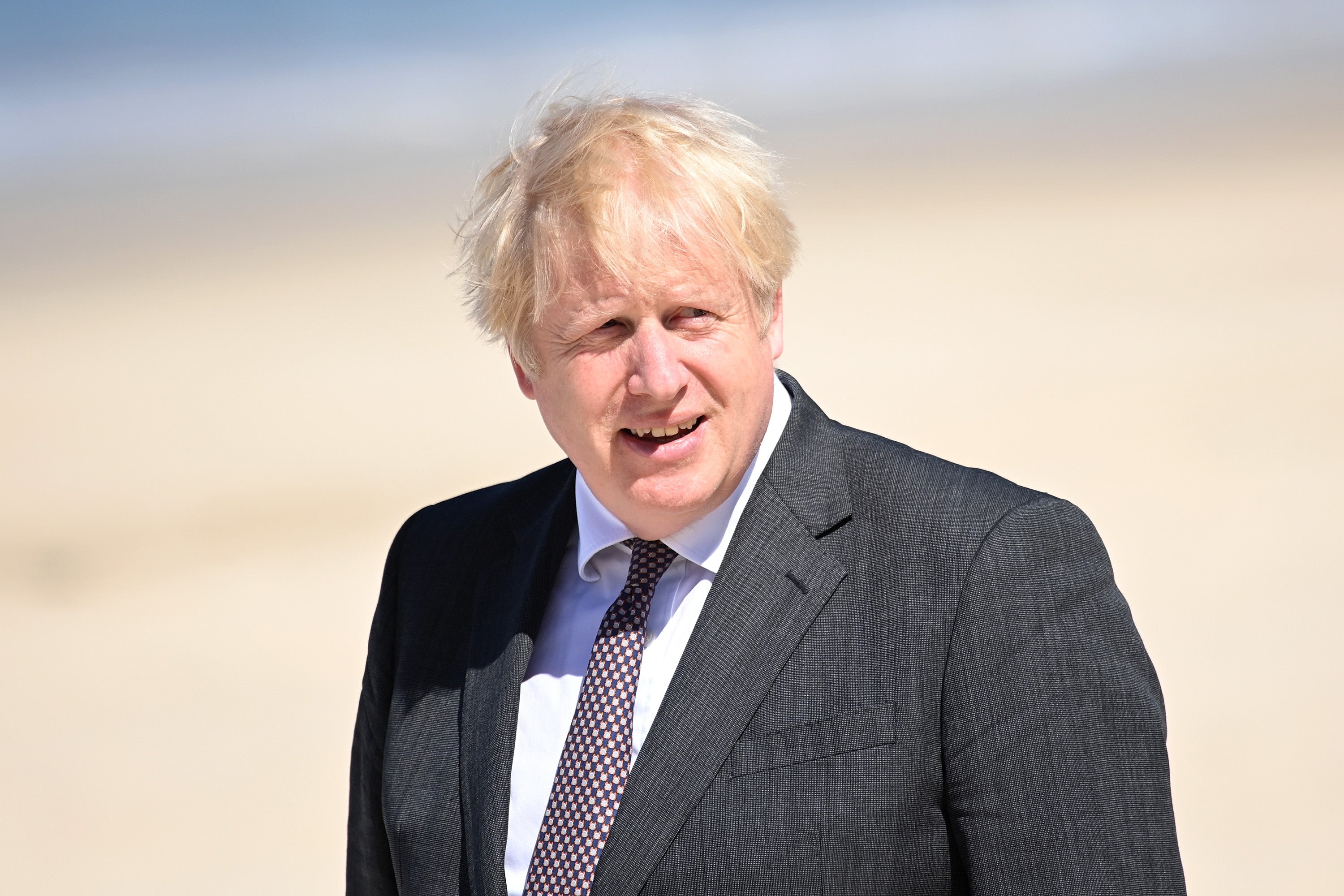G7 leaders launch infrastructure plan for poorer countries to rival growing influence of China
Railways in Africa and wind farms in Asia to receive financing – as counter to Xi Jinping’s Belt and Road initiative

Your support helps us to tell the story
From reproductive rights to climate change to Big Tech, The Independent is on the ground when the story is developing. Whether it's investigating the financials of Elon Musk's pro-Trump PAC or producing our latest documentary, 'The A Word', which shines a light on the American women fighting for reproductive rights, we know how important it is to parse out the facts from the messaging.
At such a critical moment in US history, we need reporters on the ground. Your donation allows us to keep sending journalists to speak to both sides of the story.
The Independent is trusted by Americans across the entire political spectrum. And unlike many other quality news outlets, we choose not to lock Americans out of our reporting and analysis with paywalls. We believe quality journalism should be available to everyone, paid for by those who can afford it.
Your support makes all the difference.G7 leaders are launching an infrastructure plan for poorer countries to rival the might of China, but are being accused of failing the test of the climate emergency.
Railways in Africa and wind farms in Asia are among projects set to receive financing under the “Build Back Better World” scheme – a counter to Xi Jinping’s Belt and Road initiative.
It is designed to mobilise private-sector capital in areas such as climate, health and digital technology, to help meet the estimated $40 trillion needed by developing nations by 2035.
China has stolen a march with its 2013 Belt and Road Initiative, which has seen more than 100 countries sign agreements to cooperate in railways, ports, highways and other infrastructure projects.
It is seen as a vehicle for Communist China to expand its influence – an accusation Beijing dismisses as an “imperial hangover” from the days of western humiliation of its country.
Boris Johnson made no mention of China as he announced the summit was poised to agree the plan, arguing it would also “accelerate the global shift to renewable energy and sustainable technology”.
“The G7 has an unprecedented opportunity to drive a global green industrial revolution, with the potential to transform the way we live,” the prime minister said.
But the White House made clear its intentions, a senior official telling Reuters: “Until now we haven’t offered a positive alternative that reflects our values, our standards and our way of doing business.”
On the summit’s last day, the G7 nations are under pressure to meet a 2009 pledge to spend $100bn a year to help the poorest countries adapt to the climate emergency.
According to Oxfam, the G7 – which is meant to find 80 per cent of the fund – has committed to only $36bn of state climate finance by 2025, and only $8-10bn of that is for adaptation.
Its leaders will hear from naturalist David Attenborough, who will plead with them to take the action badly needed to prevent “crippling” global heating.
No 10 said there would be further pledges “to increase contributions to international climate finance to meet the target”, but green groups are gloomy.
The G7 will also endorse a “nature compact” to halt and reverse biodiversity loss by 2030 by protecting at least 30 per cent of land and 30 per cent of ocean by the end of the decade.
At Carbis Bay Mr Johnson launched a £500m Blue Planet Fund to help developing nations tackle unsustainable fishing, reduce marine pollution and protect coastal ecosystems.
But Damian Green, the former de-facto Tory deputy prime minister, warned the UK’s deep overseas aid cuts were preventing decisive action.
“There is no new money being announced, which is becoming a pattern after yesterday’s announcement on vaccines and girls’ education. It’s clear the UK’s cut from 0.7 per cent to 0.5 per cent on aid has prevented finance ministers agreeing a financing plan,” he said.
And John Sauven, Greenpeace’s executive director, said: “Just this week, the government U-turned on its promise to set a legally binding target of 2030 to halt the decline of nature.
“Ministers continue to allow industrial fishing boats, like supertrawlers and bottom trawlers, to plunder our marine protected areas.”
Join our commenting forum
Join thought-provoking conversations, follow other Independent readers and see their replies
Comments